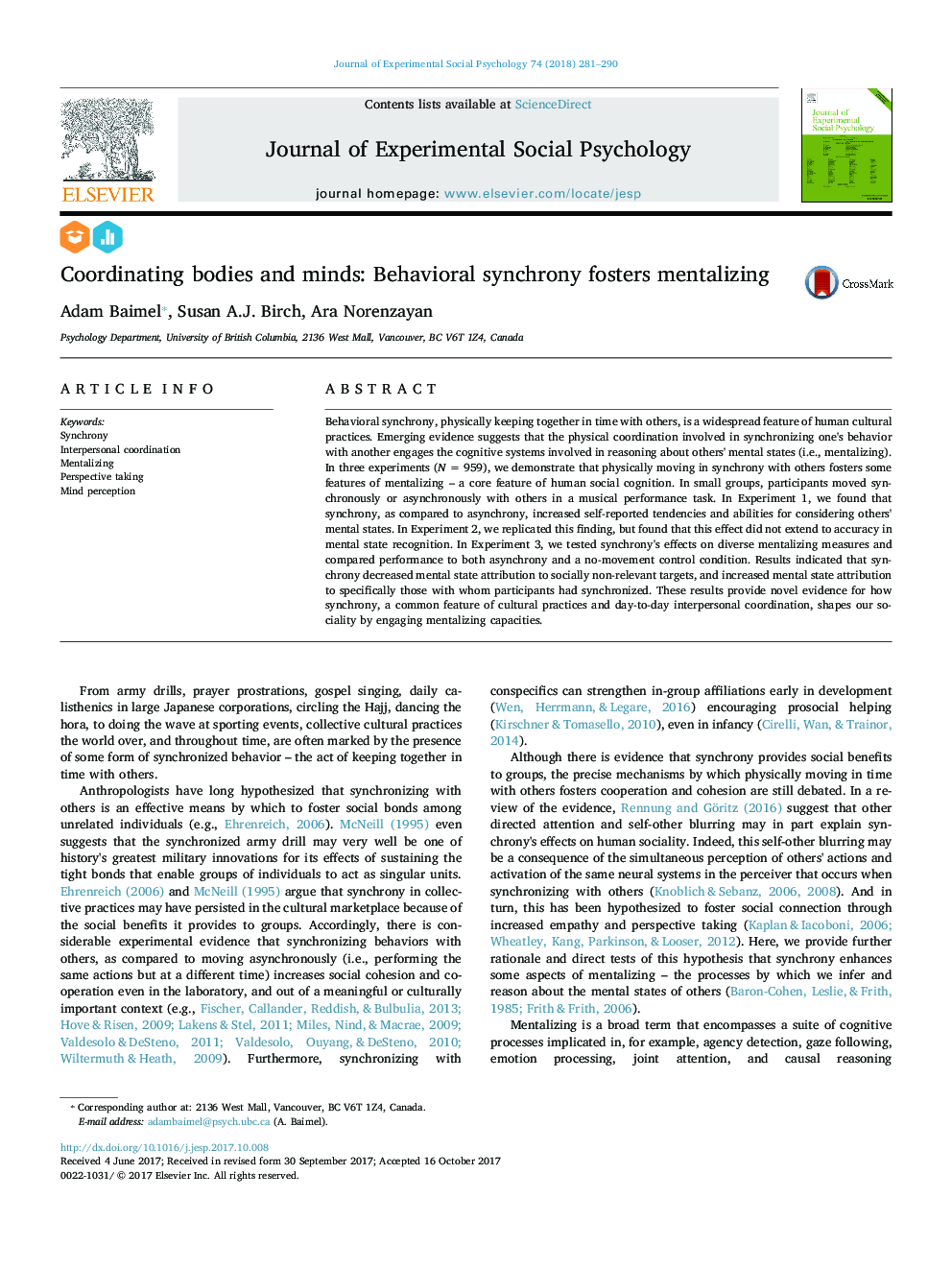| Article ID | Journal | Published Year | Pages | File Type |
|---|---|---|---|---|
| 7324272 | Journal of Experimental Social Psychology | 2018 | 10 Pages |
Abstract
Behavioral synchrony, physically keeping together in time with others, is a widespread feature of human cultural practices. Emerging evidence suggests that the physical coordination involved in synchronizing one's behavior with another engages the cognitive systems involved in reasoning about others' mental states (i.e., mentalizing). In three experiments (NÂ =Â 959), we demonstrate that physically moving in synchrony with others fosters some features of mentalizing - a core feature of human social cognition. In small groups, participants moved synchronously or asynchronously with others in a musical performance task. In Experiment 1, we found that synchrony, as compared to asynchrony, increased self-reported tendencies and abilities for considering others' mental states. In Experiment 2, we replicated this finding, but found that this effect did not extend to accuracy in mental state recognition. In Experiment 3, we tested synchrony's effects on diverse mentalizing measures and compared performance to both asynchrony and a no-movement control condition. Results indicated that synchrony decreased mental state attribution to socially non-relevant targets, and increased mental state attribution to specifically those with whom participants had synchronized. These results provide novel evidence for how synchrony, a common feature of cultural practices and day-to-day interpersonal coordination, shapes our sociality by engaging mentalizing capacities.
Related Topics
Life Sciences
Neuroscience
Behavioral Neuroscience
Authors
Adam Baimel, Susan A.J. Birch, Ara Norenzayan,
